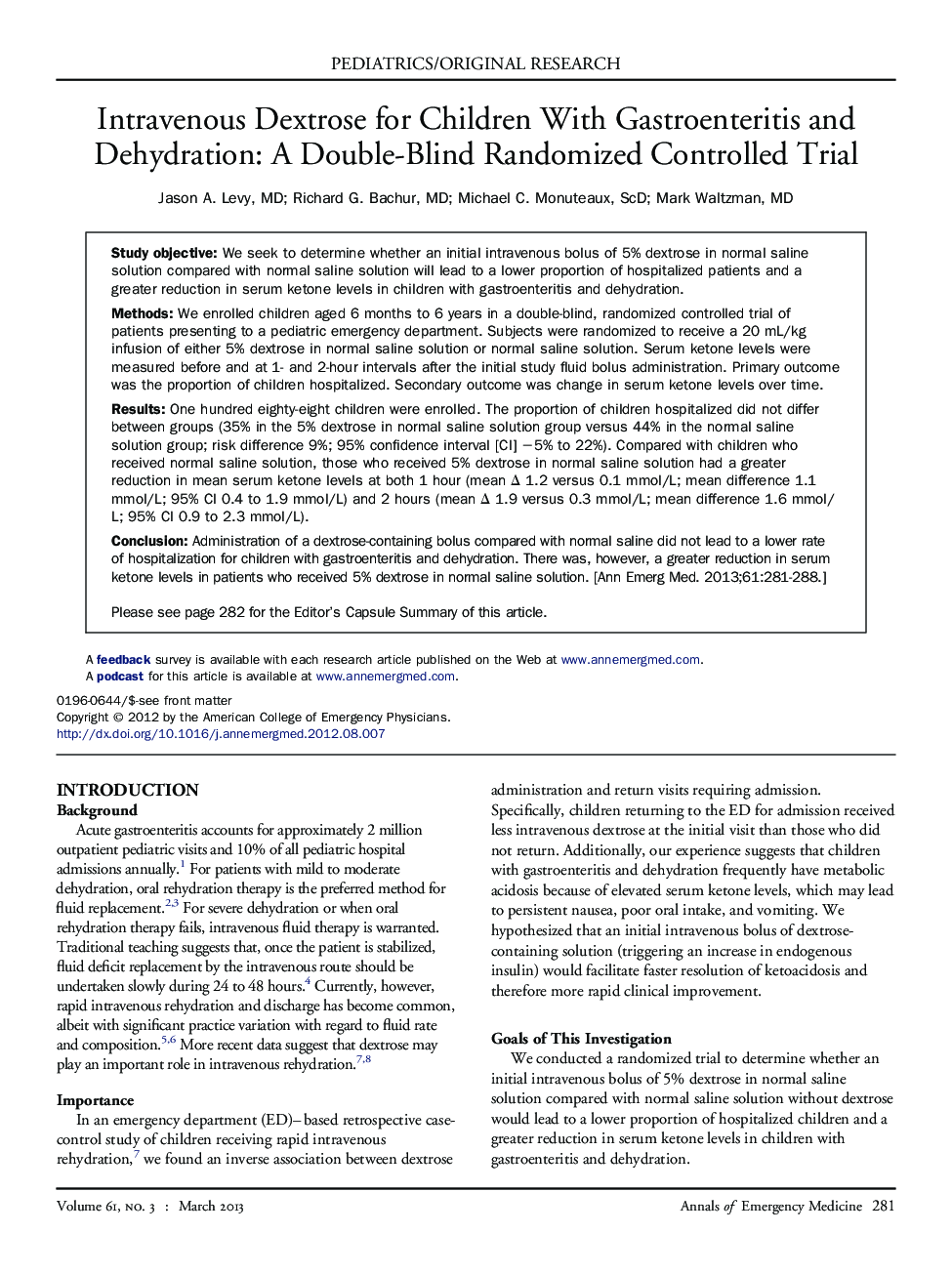| Article ID | Journal | Published Year | Pages | File Type |
|---|---|---|---|---|
| 3230458 | Annals of Emergency Medicine | 2013 | 8 Pages |
Study objectiveWe seek to determine whether an initial intravenous bolus of 5% dextrose in normal saline solution compared with normal saline solution will lead to a lower proportion of hospitalized patients and a greater reduction in serum ketone levels in children with gastroenteritis and dehydration.MethodsWe enrolled children aged 6 months to 6 years in a double-blind, randomized controlled trial of patients presenting to a pediatric emergency department. Subjects were randomized to receive a 20 mL/kg infusion of either 5% dextrose in normal saline solution or normal saline solution. Serum ketone levels were measured before and at 1- and 2-hour intervals after the initial study fluid bolus administration. Primary outcome was the proportion of children hospitalized. Secondary outcome was change in serum ketone levels over time.ResultsOne hundred eighty-eight children were enrolled. The proportion of children hospitalized did not differ between groups (35% in the 5% dextrose in normal saline solution group versus 44% in the normal saline solution group; risk difference 9%; 95% confidence interval [CI] −5% to 22%). Compared with children who received normal saline solution, those who received 5% dextrose in normal saline solution had a greater reduction in mean serum ketone levels at both 1 hour (mean Δ 1.2 versus 0.1 mmol/L; mean difference 1.1 mmol/L; 95% CI 0.4 to 1.9 mmol/L) and 2 hours (mean Δ 1.9 versus 0.3 mmol/L; mean difference 1.6 mmol/L; 95% CI 0.9 to 2.3 mmol/L).ConclusionAdministration of a dextrose-containing bolus compared with normal saline did not lead to a lower rate of hospitalization for children with gastroenteritis and dehydration. There was, however, a greater reduction in serum ketone levels in patients who received 5% dextrose in normal saline solution.
